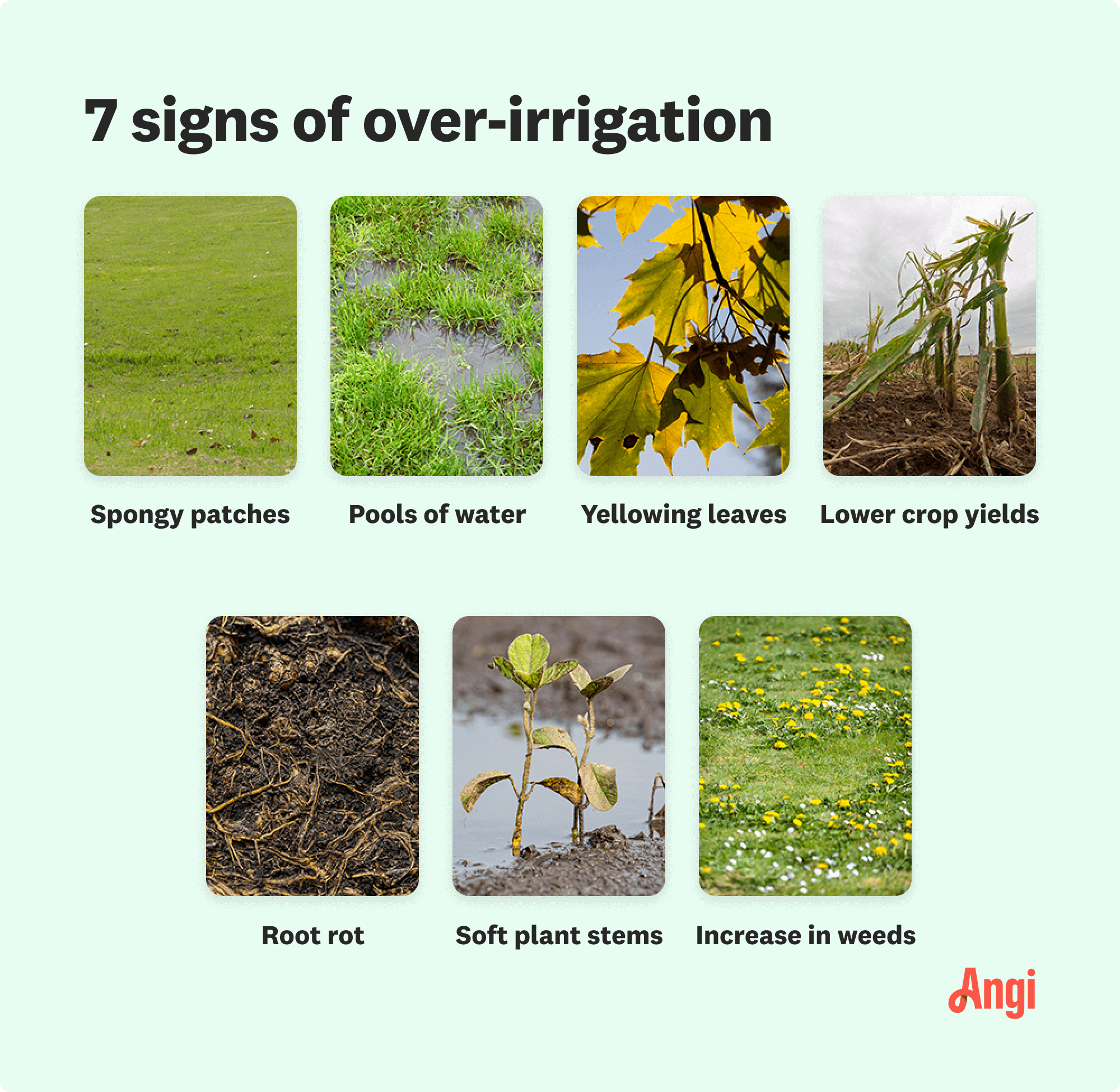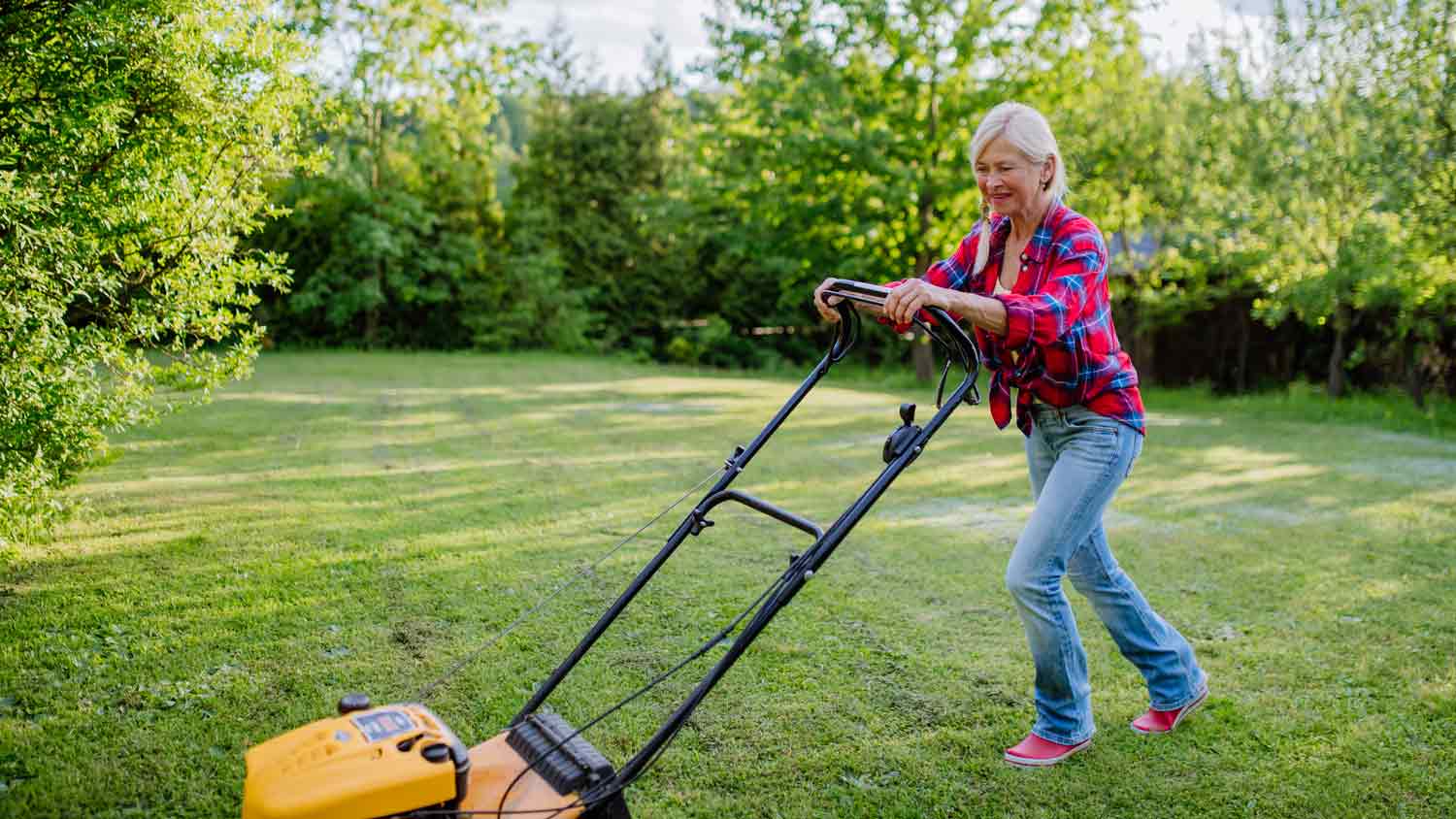
Discover drip irrigation system cost estimates, key price factors, and ways to save. Get transparent pricing to plan your home irrigation project confidently.
When temperatures drop and plants are well-established, it’s time to stop watering


Stop watering the grass when daytime temperatures consistently drop below 50 degrees Fahrenheit (F) or nighttime temperatures drop below 30 degrees F.
When you have frequent rain storms, there’s no need to water your grass.
After your grass has gone through a growing season, you can water less.
Overwatering can cause root rot and pests.
If you’re wondering when to stop watering your grass, you’re in the right place. Certain types of grass require more care than others, so it’s worth researching when to pull back the watering hose. If you need help determining the best watering schedule for your yard, consider working with a lawn care service to provide expert opinions and services. Let’s dig into when to stop watering your grass.
You should stop watering the grass in the fall when daytime temperatures consistently drop below 50 degrees F or nighttime temperatures consistently drop below 30 degrees F, which is often between October and late November, depending on your climate.
| Grass type | Season Type | Water Requirements | When to Stop Watering |
|---|---|---|---|
| Kentucky Bluegrass | Cool-season | Average amount | Daytime temps below 50 degrees F, nighttime temps below 30 degrees F |
| Tall Fescue | Cool-season | Daily waterings | Daytime temps below 50 degrees F, nighttime temps below 30 degrees F |
| Ryegrass | Cool-season | Average amount | Daytime temps below 50 degrees F, nighttime temps below 30 degrees F |
| Fine Fescue | Cool-season | Multiple daily waterings | Daytime temps below 50 degrees F, nighttime temps below 30 degrees F |
| Centipedegrass | Warm-season | Less than average | Daytime temps below 50 degrees F, nighttime temps below 30 degrees F |
When you should stop watering your grass depends on many factors, including your home’s location and the type of grass that makes up your lawn. While each person’s lawn needs will differ, these are common situations where you can stop watering your grass.
If you live in a cold climate, you should expect to stop watering your lawn when the ground freezes. When the ground freezes, it acts as a barrier that stops water from getting to the roots of your grass. Lawns in these environments typically become dormant during this time and don’t require irrigation.
Grass typically only requires around one inch of water each week to remain healthy. You’ll want to turn your lawn irrigation system off when your area is expecting showers that amount to at least one inch per week. If you live in a rainy climate, it’s likely that you’ll only ever need to water your grass in periods of drought.
Certain types of grass are more drought tolerant than others, and once they’re established they don’t need to be watered daily or else they’ll get waterlogged. That said, other grass types require more water than average, particularly ornamental variations.

Striking the right balance between overwatering and under-watering your grass is crucial to keeping it healthy. Both extremes can cause harm to your lawn, some of which will be difficult to reverse.
More weeds: Weeds like crabgrass, nutsedge, and bluegrass can be caused by overwatering. Once these weeds arrive in your lawn, they can be difficult to remove.
Fungus: Overwatered lawns are ideal growing conditions for mushrooms and other fungus.
Pests: Pest problems are common in overwatered lawns, which are the perfect breeding ground for many insects. An overirrigated lawn can expect bugs like grubs, mole crickets, spittlebugs, and springtails.
Soft ground: If your lawn feels spongy or soggy when you walk on it, it’s likely overwatered. This scenario can result in water-logged roots that could kill your plants.
Shallow root systems: If you don’t water your lawn enough, its root system will be shallow and unable to take advantage of the moisture held in deeper soil. This situation will lead to the need for more frequent watering.
Discoloration: Under watering can cause your lawn to become stressed and less tolerant of heat, causing yellow and brown discoloration.
Slow growth: Grass needs to be watered deeply to grow vigorously. If you’re under watering, your lawn's growth is likely to be slower than normal.
Weak spring back: Under watered grass doesn’t spring back to the touch as easily as well-watered grass. This scenario can cause visible footprints to appear when your lawn is walked across which might become permanent.

A well-maintained lawn can add value to your property and even purify the air you breathe. To keep yours lush and green, maintain your lawn using these lawn maintenance tips:
Mow your lawn: Mowing your lawn can help deter weeds, keep diseases away, and help your grass grow healthier. To best maintain a healthy lawn, you should use a mulching mower, breaking down the grass clippings into small pieces and returning their nutrients to your lawn.
Water the right amount: Lawns need a good drenching of at least 1 inch of water each week to thrive. Be sure to water your lawn, especially when it doesn’t rain, to ensure it is getting enough water.
Fertilize as needed: If your lawn isn’t healthy, giving it nutrients in the form of fertilizer can help it grow stronger. Lawn fertilizers can come in the form of organic matter or synthetic fertilizer.
Manage weeds carefully: Although some weed growth is healthy for your lawn, excess weed growth can use the water and nutrients your grass needs to stay strong. You should manage your weeds using methods such as hand-pulling and digging out weeds, plus safe chemical methods if necessary.
Monitor pest activity: Pests can cause lasting damage to your lawn but you can get them under control more quickly if you spot them early on. Early signs of pest activity include patches of dead grass, dirt mounds, and burrows.
From average costs to expert advice, get all the answers you need to get your job done.

Discover drip irrigation system cost estimates, key price factors, and ways to save. Get transparent pricing to plan your home irrigation project confidently.

If your sprinkler system isn’t working, it may be time for a new pump. Find out sprinkler pump replacement costs with this guide.

Discover yard drainage cost estimates, including average prices, key cost factors, and tips to help you budget for your yard drainage project.

Wondering how to repair a sprinkler line? Whether it’s been cut, punctured, or broken, this project is absolutely DIY-able. Learn how with this guide.

Your sprinkler system could be leaking for many reasons, such as faulty valves and broken pipes. Learn five common reasons along with solutions.

Irrigation controller on the fritz? Here’s how to tell whether your sprinkler controller is bad—and some steps to take to mitigate the problem.